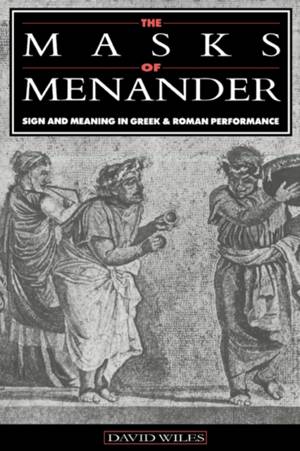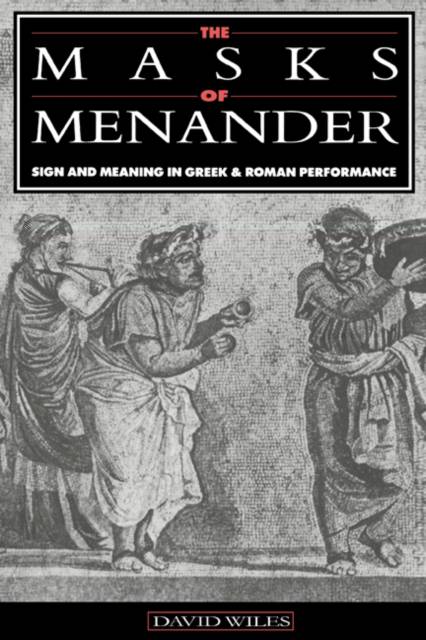
- Afhalen na 1 uur in een winkel met voorraad
- Gratis thuislevering in België vanaf € 30
- Ruim aanbod met 7 miljoen producten
- Afhalen na 1 uur in een winkel met voorraad
- Gratis thuislevering in België vanaf € 30
- Ruim aanbod met 7 miljoen producten
Zoeken
The Masks of Menander
Sign and Meaning in Greek and Roman Performance
David Wiles
Paperback | Engels
€ 73,95
+ 147 punten
Uitvoering
Omschrijving
This book provides a detailed analysis of the conventions and techniques of performance characteristic of the Greek theatre of Menander and the subsequent Roman theatre of Plautus and Terence. Drawing on literary and archaeological sources, and on scientific treatises, David Wiles identifies the mask as crucial to the actor's art, and shows how sophisticated the art of the mask-maker became. He also examines the other main elements which the audience learned to decode: costume, voice, movement, etc. In order to identify features that were unique to Hellenistic theatre he contrasts Greek New Comedy with other traditions of masked comedy, and shows how different Roman conventions of performance rest upon different underlying assumptions about religion, marriage and class. David Wiles offers theatre historians and classicists a radical new approach to reading play texts. His book will also be useful to archaeologists seeking to understand what masks mean and how Greek and Roman theatres were used.
Specificaties
Betrokkenen
- Auteur(s):
- Uitgeverij:
Inhoud
- Aantal bladzijden:
- 296
- Taal:
- Engels
Eigenschappen
- Productcode (EAN):
- 9780521543521
- Verschijningsdatum:
- 3/06/2004
- Uitvoering:
- Paperback
- Formaat:
- Trade paperback (VS)
- Afmetingen:
- 156 mm x 229 mm
- Gewicht:
- 449 g

Alleen bij Standaard Boekhandel
+ 147 punten op je klantenkaart van Standaard Boekhandel
Beoordelingen
We publiceren alleen reviews die voldoen aan de voorwaarden voor reviews. Bekijk onze voorwaarden voor reviews.








